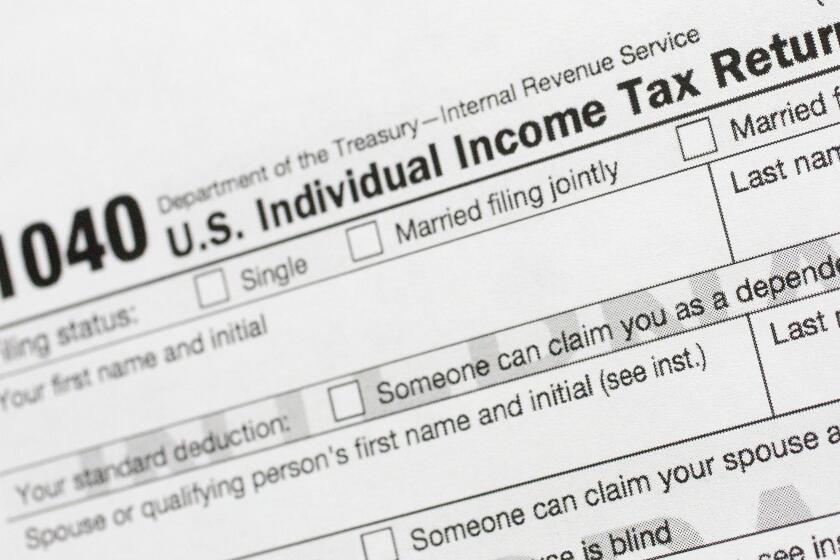You need to satisfy this key requirement to get an IRS home sale tax exemption

Dear Liz: I was given a condominium, which Iâm renting out while I live overseas, traveling from country to country. I understand that when I sell the condo, I can exclude up to $250,000 of home sale profits if the property is my âprimary residenceâ for at least two of the last five years. But how is primary residence established? I have heard that the IRS looks at the address on your tax returns, on your voting registration and on file with the Department of Motor Vehicles. I list the condoâs address for voter registration but with the IRS and DMV, I use my mail forwarding address. Will that keep me from establishing the condo as my primary residence?
Answer: Whatâs keeping you from establishing the condo as your primary residence is the fact that itâs not your primary residence. Someone else is living there and paying you rent.
If you want to take advantage of the home sales profit exemption, you need to actually occupy the home. Youâre allowed âshort, temporary absencesâ but not the vagabond life.
Many middle-income retirees face the âtax torpedo,â which is a sharp rise and then fall in marginal tax rates. There are ways to minimize it.
Delaying Social Security benefits
Dear Liz: I reached my full Social Security age (66) in December 2020. Iâve been waiting until age 70 to start benefits so I can get the 8% annual delayed retirement credits and maximize my benefit. However, if the 2023 cost of living increase will be 10.5%, should I go ahead and start benefits this year, at age 68? Does someone need to be on Social Security for a full year before being eligible for the COLA, or would one month be enough?
Answer: Your benefit will get the cost of living increase whether youâve started receiving checks or not. In fact, itâs been getting those increases since you turned 62 and became eligible. So applying now just means giving up two yearsâ worth of delayed retirement credits.
The 8% annual growth is difficult get elsewhere, so planners often urge clients to tap other money first when they retire.
Dealing with credit challenges
Dear Liz: I felt you should have corrected the person who said they felt like a loser because heavy credit card usage lowered their credit scores. I went through a period of poor credit after I was diagnosed with amyotrophic lateral sclerosis (ALS). It took about nine months to get our financial footing again. My scores are on the mend now, but at no point did I feel like a loser. In fact, I am very proud of how I and my family responded to this challenge. Many people are hit with misfortune that is no fault of their own. Often they are truly winners with how they respond. I hope you take the opportunity to make a comment about how bad credit doesnât make a person a loser. That often the best of us are revealed by how we deal with it instead.
Answer: The original letter writer was making a wry comment about their situation, writing that their husband âthinks itâs funny he has great scores and I look like a loser!â
But your point about people being more than their credit scores is well taken.
Allowing Medicare to negotiate drug prices wonât help as much as anyone thinks.
Avoiding Medicare late enrollment penalties
Dear Liz: I have taken multiple in-person and online educational classes about Medicare prior to my 65th birthday. What I learned from these classes was that the law demands people register for Medicare Part A when we turn 65 whether we are working or not. Like the woman in your column, I also work full time and do not plan to retire until 70 (at least that is my new target date). At the time of my retirement I will apply for Medicare Part B and purchase supplemental insurance.
Answer: Itâs wonderful that you made the effort to educate yourself about Medicare, which can be incredibly complicated. However, you got the wrong lesson about whatâs required, since thereâs no law that forces people to sign up for any part of Medicare, including Part A, which covers hospitalizations and which is typically premium-free.
The reason most people should sign up at age 65 has to do with penalties. People who delay signing up for Medicare Part B, which covers doctorâs visits, or Part D, which covers prescriptions, can face permanent, lifetime premium penalties unless they qualify for certain exemptions. One of those exemptions is having qualifying health insurance coverage from a job, either your own or your spouseâs. You can find more details at https://www.medicare.gov/basics/costs/medicare-costs/avoid-penalties.
Liz Weston, Certified Financial Planner, is a personal finance columnist for NerdWallet. Questions may be sent to her at 3940 Laurel Canyon, No. 238, Studio City, CA 91604, or by using the âContactâ form at asklizweston.com.
More to Read
Inside the business of entertainment
The Wide Shot brings you news, analysis and insights on everything from streaming wars to production â and what it all means for the future.
You may occasionally receive promotional content from the Los Angeles Times.













